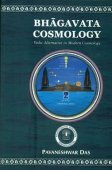Shukadeva, Śukadeva: 9 definitions
Introduction:
Shukadeva means something in Hinduism, Sanskrit. If you want to know the exact meaning, history, etymology or English translation of this term then check out the descriptions on this page. Add your comment or reference to a book if you want to contribute to this summary article.
The Sanskrit term Śukadeva can be transliterated into English as Sukadeva or Shukadeva, using the IAST transliteration scheme (?).
In Hinduism
Purana and Itihasa (epic history)
Source: Wisdom Library: Bhagavata PuranaŚukadeva (शुकदेव):—Son of Vyāsa (also known as Bādarāyaṇa) from whom he studies the Śrīmad-Bhāgavatam (Bhāgavata Purāṇa). (see Bhāgavata Purāṇa 9.22.21-24)

The Purana (पुराण, purāṇas) refers to Sanskrit literature preserving ancient India’s vast cultural history, including historical legends, religious ceremonies, various arts and sciences. The eighteen mahapuranas total over 400,000 shlokas (metrical couplets) and date to at least several centuries BCE.
Chandas (prosody, study of Sanskrit metres)
Source: Shodhganga: a concise history of Sanskrit Chanda literatureŚukadeva (शुकदेव) or Śukadeva Paṇḍita is the author of the Vṛttacintāmaṇi, which has six chapters called maricī. Śukadeva had got patronage of King Balavanta Siṃha, at whose instance he composed this text. Śukadeva mentions his patron Balavanta with the prefix as nṛpato śārdūla in the colophon of sixth chapter of the text. He also introduces himself as śrīvidvat-upādhyāyapaṇḍitaśukadeva.

Chandas (छन्दस्) refers to Sanskrit prosody and represents one of the six Vedangas (auxiliary disciplines belonging to the study of the Vedas). The science of prosody (chandas-shastra) focusses on the study of the poetic meters such as the commonly known twenty-six metres mentioned by Pingalas.
Vaishnavism (Vaishava dharma)
Source: Pure Bhakti: Brhad BhagavatamrtamŚukadeva (शुकदेव) refers to:—The son of Vyāsa-deva and the original speaker of Śrīmad Bhāgavatam, which he spoke to instruct Parīkṣit Mahārāja at the time of Śrī Parīkṣit’s death. (cf. Glossary page from Śrī Bṛhad-bhāgavatāmṛta).

Vaishnava (वैष्णव, vaiṣṇava) or vaishnavism (vaiṣṇavism) represents a tradition of Hinduism worshipping Vishnu as the supreme Lord. Similar to the Shaktism and Shaivism traditions, Vaishnavism also developed as an individual movement, famous for its exposition of the dashavatara (‘ten avatars of Vishnu’).
Languages of India and abroad
Sanskrit dictionary
Source: Cologne Digital Sanskrit Dictionaries: Shabda-Sagara Sanskrit-English DictionaryŚukadeva (शुकदेव).—m.
(-vaḥ) The son of Vyasa: see śuka, E. śuka, and deva divine.
Source: Cologne Digital Sanskrit Dictionaries: Cappeller Sanskrit-English DictionaryŚukadeva (शुकदेव).—[masculine] [Epithet] of Kṛṣṇa.
Source: Cologne Digital Sanskrit Dictionaries: Aufrecht Catalogus Catalogorum1) Śukadeva (शुकदेव) as mentioned in Aufrecht’s Catalogus Catalogorum:—Jyotiṣasāra.
2) Śukadeva (शुकदेव):—Rāmāṣṭaka.
3) Śukadeva (शुकदेव):—Vaidyakalpadruma.
4) Śukadeva (शुकदेव):—Śukasūktisudhākara.
5) Śukadeva (शुकदेव):—Śrutabodhaṭīkā.
6) Śukadeva (शुकदेव):—son of Viṭṭhala: Smṛticandrikā.
7) Śukadeva (शुकदेव):—father of Bhūdeva Śukla (Rasavilāsa).
8) Śukadeva (शुकदेव):—son of Lakṣmaṇa Bhaṭṭa Sūri: Jyotiṣasāra.
9) Śukadeva (शुकदेव):—son of Dāmodara, of Mathurā: Vyavahāravṛnda jy.
Source: Cologne Digital Sanskrit Dictionaries: Monier-Williams Sanskrit-English Dictionary1) Śukadeva (शुकदेव):—[=śuka-deva] [from śuka] m. Name of Kṛṣṇa, [Pañcarātra]
2) [v.s. ...] of a son of Vyāsa, [ib.]
3) [v.s. ...] of a son of Hari-hara, [Catalogue(s)]
4) [v.s. ...] of various authors, [ib.]
5) [v.s. ...] (with paṇḍita-śiromaṇi) of a man, [ib.]
Source: Cologne Digital Sanskrit Dictionaries: Yates Sanskrit-English DictionaryŚukadeva (शुकदेव):—[śuka-deva] (vaḥ) 1. m. Son of Vyāsa.
[Sanskrit to German]
Sanskrit, also spelled संस्कृतम् (saṃskṛtam), is an ancient language of India commonly seen as the grandmother of the Indo-European language family (even English!). Closely allied with Prakrit and Pali, Sanskrit is more exhaustive in both grammar and terms and has the most extensive collection of literature in the world, greatly surpassing its sister-languages Greek and Latin.
See also (Relevant definitions)
Partial matches: Shuka, Deva, Teva.
Starts with: Shukadeva panditashiromani, Shukadevacaritra.
Full-text (+3): Shukadevacaritra, Jyotishasara, Parikshit, Shuka, Vaidyakalpadruma, Lakshmana bhatta suri, Shukasuktisudhakara, Shukadeva panditashiromani, Vyavaharavrinda, Bhudeva shukla, Vrittacintamani, Badarayana, Mahajana, Anu, Ramashtaka, Rasavilasa, Vyasa, Vitthala, Paramastra, Smriticandrika.
Relevant text
Search found 28 books and stories containing Shukadeva, Shuka-deva, Śuka-deva, Suka-deva, Śukadeva, Sukadeva; (plurals include: Shukadevas, devas, Śukadevas, Sukadevas). You can also click to the full overview containing English textual excerpts. Below are direct links for the most relevant articles:
Brihad Bhagavatamrita (commentary) (by Śrī Śrīmad Bhaktivedānta Nārāyana Gosvāmī Mahārāja)
Verse 1.1.15-17 < [Chapter 1 - Bhauma (the earthly plane)]
Verse 2.1.5 < [Chapter 1 - Vairāgya (renunciation)]
Verse 1.7.117 < [Chapter 7 - Pūrṇa (pinnacle of excellent devotees)]
Samkhya thoughts in the Mahabharata (by Shini M.V.)
Vyāsa Śuka Deva Saṃvāda < [Chapter 3 - The Philosophical Tenets in the Śānti-parva]
Sixteen Tattvas of Sāṃkhya philosophy < [Chapter 4 - Sāṃkhya thoughts in the Śānti-parva of Mahābhārata]
Sāṃkhya philosophy in the Śānti-parva and (Introduction) < [Chapter 4 - Sāṃkhya thoughts in the Śānti-parva of Mahābhārata]
Śrī Kṛṣṇa-vijaya (by Śrī Gunaraja Khan)
The Devi Bhagavata Purana (by Swami Vijñanananda)
Chapter 4 - On the excellency of the Devī < [Book 1]
Chapter 10 - On Śiva’s granting boons < [Book 1]
Chapter 3 - On praising the Purāṇas and on each Vyāsa of every Dvāpara Yuga < [Book 1]
Haribhakti-sudhodaya (by Tridandi Sri Bhakti Prajnan Yati Maharaj)
Chaitanya Bhagavata (by Bhumipati Dāsa)
Verse 1.3.18 < [Chapter 3 - Calculation of the Lord’s Horoscope]
Verse 1.7.45-46 < [Chapter 7 - Śrī Viśvarūpa Takes Sannyāsa]
Verse 2.21.16 < [Chapter 21 - The Lord’s Chastisement of Devānanda]
Related products
